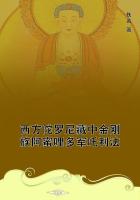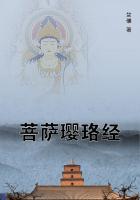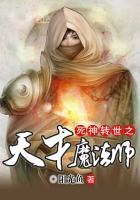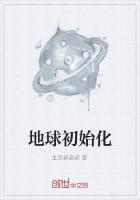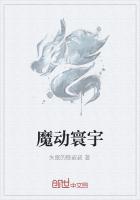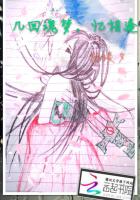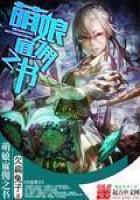'They have such a nice little Argenteuil wine,'murmured Fauchelevent.
'Villager,'retorted the man,'I ought not be a grave-digger.My father was a porter at the Prytaneum[Town-Hall].He destined me for literature.
But he had reverses.
He had losses on'change.I was obliged to renounce the profession of author.
But I am still a public writer.'
'So you are not a grave-digger,then?'returned Fauchelevent,clutching at this branch,feeble as it was.
'The one does not hinder the other.
I cumulate.'
Fauchelevent did not understand this last word.
'Come have a drink,'said he.
Here a remark becomes necessary.
Fauchelevent,whatever his anguish,offered a drink,but he did not explain himself on one point;who was to pay?
Generally,Fauchelevent offered and Father Mestienne paid.An offer of a drink was the evident result of the novel situation created by the new grave-digger,and it was necessary to make this offer,but the old gardener left the proverbial quarter of an hour named after Rabelais in the dark,and that not unintentionally.As for himself,Fauchelevent did not wish to pay,troubled as he was.
The grave-digger went on with a superior smile:——
'One must eat.
I have accepted Father Mestienne's reversion.One gets to be a philosopher when one has nearly completed his classes.
To the labor of the hand I join the labor of the arm.I have my scrivener's stall in the market of the Rue de Sevres.You know?the Umbrella Market.
All the cooks of the Red Cross apply to me.
I scribble their declarations of love to the raw soldiers.In the morning I write love letters;in the evening I dig graves.Such is life,rustic.'
The hearse was still advancing.
Fauchelevent,uneasy to the last degree,was gazing about him on all sides.
Great drops of perspiration trickled down from his brow.
'But,'continued the grave-digger,'a man cannot serve two mistresses.I must choose between the pen and the mattock.
The mattock is ruining my hand.'
The hearse halted.
The choir boy alighted from the mourning-coach,then the priest.
One of the small front wheels of the hearse had run up a little on a pile of earth,beyond which an open grave was visible.
'What a farce this is!'repeated Fauchelevent in consternation.
BOOK EIGHTH.——CEMETERIES TAKE THAT WHICH IS COMMITTED THEM
Ⅵ BETWEEN FOUR PLANKS
Who was in the coffin?
The reader knows.
Jean Valjean.
Jean Valjean had arranged things so that he could exist there,and he could almost breathe.
It is a strange thing to what a degree security of conscience confers security of the rest.
Every combination thought out by Jean Valjean had been progressing,and progressing favorably,since the preceding day.
He,like Fauchelevent,counted on Father Mestienne.
He had no doubt as to the end.
Never was there a more critical situation,never more complete composure.
The four planks of the coffin breathe out a kind of terrible peace.It seemed as though something of the repose of the dead entered into Jean Valjean's tranquillity.
From the depths of that coffin he had been able to follow,and he had followed,all the phases of the terrible drama which he was playing with death.
Shortly after Fauchelevent had finished nailing on the upper plank,Jean Valjean had felt himself carried out,then driven off.
He knew,from the diminution in the jolting,when they left the pavements and reached the earth road.
He had divined,from a dull noise,that they were crossing the bridge of Austerlitz.
At the first halt,he had understood that they were entering the cemetery;at the second halt,he said to himself:——
'Here is the grave.'
Suddenly,he felt hands seize the coffin,then a harsh grating against the planks;he explained it to himself as the rope which was being fastened round the casket in order to lower it into the cavity.
Then he experienced a giddiness.
The undertaker's man and the grave-digger had probably allowed the coffin to lose its balance,and had lowered the head before the foot.
He recovered himself fully when he felt himself horizontal and motionless.
He had just touched the bottom.
He had a certain sensation of cold.
A voice rose above him,glacial and solemn.
He heard Latin words,which he did not understand,pass over him,so slowly that he was able to catch them one by one:——
'Qui dormiunt in terrae pulvere,evigilabunt;alii in vitam aeternam,et alii in approbrium,ut videant semper.'
A child's voice said:——
'De profundis.'
The grave voice began again:——
'Requiem aeternam dona ei,Domine.'
The child's voice responded:——
'Et lux perpetua luceat ei.'
He heard something like the gentle patter of several drops of rain on the plank which covered him.
It was probably the holy water.
He thought:
'This will be over soon now.
Patience for a little while longer.
The priest will take his departure.Fauchelevent will take Mestienne off to drink.
I shall be left.Then Fauchelevent will return alone,and I shall get out.That will be the work of a good hour.'
The grave voice resumed
'Requiescat in pace.'
And the child's voice said:——
'Amen.'
Jean Valjean strained his ears,and heard something like retreating footsteps.
'There,they are going now,'thought he.
'I am alone.'
All at once,he heard over his head a sound which seemed to him to be a clap of thunder.
It was a shovelful of earth falling on the coffin.
A second shovelful fell.
One of the holes through which he breathed had just been stopped up.
A third shovelful of earth fell.
Then a fourth.
There are things which are too strong for the strongest man.Jean Valjean lost consciousness.
BOOK EIGHTH.——CEMETERIES TAKE THAT WHICH IS COMMITTED THEM
Ⅶ IN WHICH WILL BE FOUND THE ORIGIN OF THE SAYING:
DON'T LOSE THE CARD
This is what had taken place above the coffin in which lay Jean Valjean.
When the hearse had driven off,when the priest and the choir boy had entered the carriage again and taken their departure,Fauchelevent,who had not taken his eyes from the grave-digger,saw the latter bend over and grasp his shovel,which was sticking upright in the heap of dirt.


